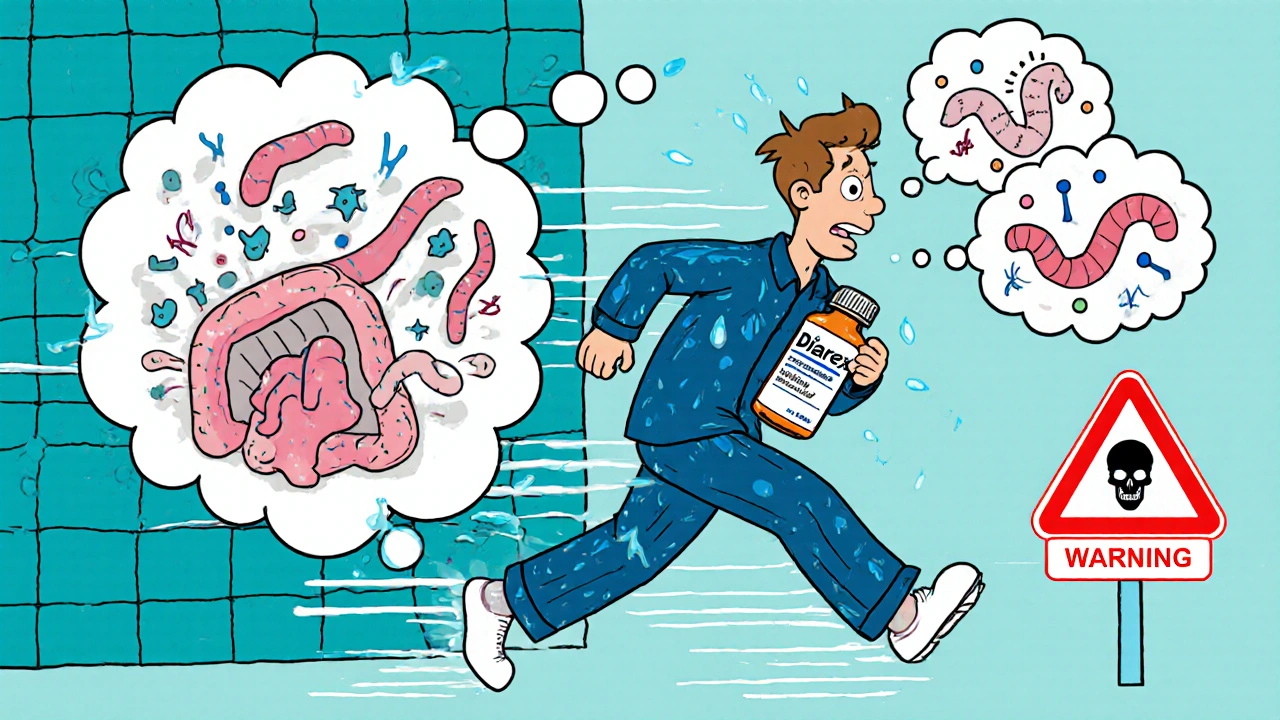Bismuth Subsalicylate: Uses, Alternatives, and What You Need to Know
When your stomach feels off—whether from food poisoning, travel, or just too much spice—you’ve probably reached for something with bismuth subsalicylate, a widely used over-the-counter compound that reduces nausea, diarrhea, and stomach irritation. Also known as the active ingredient in Pepto-Bismol, it’s one of the most common remedies for digestive discomfort worldwide. Unlike prescription drugs, you don’t need a doctor to get it. But that doesn’t mean it’s harmless. It’s a mild anti-inflammatory, an antacid, and an antimicrobial all in one—and understanding how it works helps you use it right.
It’s not just for travelers. People with occasional heartburn, mild food intolerance, or even mild cases of H. pylori-related upset often turn to bismuth subsalicylate because it coats the stomach lining and helps calm irritation. It’s also used in combination therapies for bacterial stomach infections, though not as a standalone cure. What sets it apart from other antacids like calcium carbonate or magnesium hydroxide is its dual action: it doesn’t just neutralize acid—it also reduces fluid loss in the gut and may slow the growth of certain bacteria. That’s why it shows up in more than just pink liquid—it’s in chewable tablets, caplets, and even some cold remedies for nausea.
But it’s not for everyone. If you’re allergic to aspirin, you should avoid it—bismuth subsalicylate breaks down into salicylate, the same compound found in aspirin. Kids and teens recovering from viral infections shouldn’t take it either, due to the rare but serious risk of Reye’s syndrome. And while it’s safe for short-term use, taking it for more than two weeks without checking in with a doctor can lead to side effects like dark stools, ringing in the ears, or even toxicity in rare cases. People with kidney problems or those on blood thinners need to be especially careful.
There are plenty of alternatives, and many of the posts here compare similar over-the-counter options. You’ll find guides on how Pepto-Bismol stacks up against loperamide for diarrhea, how it differs from simethicone for gas, and why some people prefer natural remedies like ginger or probiotics. You’ll also see how it fits into broader treatment plans—like when it’s used alongside antibiotics for H. pylori, or why it’s sometimes recommended for travelers heading to high-risk areas.
What you won’t find here are vague claims or marketing fluff. Just clear, practical comparisons based on real use cases. Whether you’re trying to figure out why your stomach still feels off after taking it, wondering if it’s safe to combine with your other meds, or just looking for a better option—you’ll find answers in the posts below. This isn’t just about what to take when you feel sick. It’s about understanding what’s really happening in your gut, and how to make smarter choices next time.

Compare Diarex with Other Diarrhea Treatments: What Works Best?
Diarex helps with diarrhea, but it's not always the best choice. Learn how loperamide, bismuth subsalicylate, probiotics, and ORS compare - and which option is safest and most effective for your situation.
